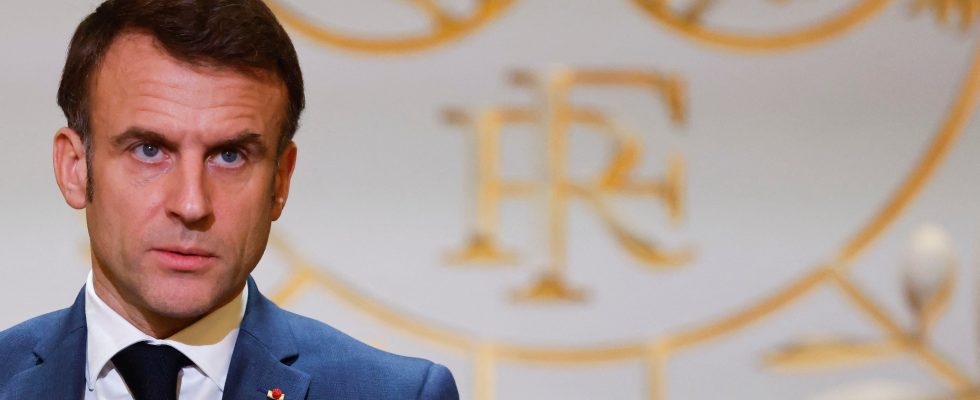Bringing science closer to politics. This is the objective of the new body imagined and enthroned, this Thursday, December 7 at the Elysée, by Emmanuel Macron. Called the “Presidential Science Council”, this tool’s mission is to enlighten the Head of State on a range of scientific questions. “Science must regain its place of intrinsic value”, declared during a speech the President of the Republic, who announced that he wanted to “transform” within 18 months the organization of French research, as part of a “real revolution”, to make it “more competitive” and remedy a “fragmentation” which is weakening its global position.
“The objective of this Council is to allow the president to have insight into scientific subjects which do not necessarily make the headlines, but on future issues,” the Elysée informed the ‘AFP. Thus, once a quarter, the members of the Presidential Science Council will exchange “in complete freedom with me” to “tell me what is going well and what is not going well”, specified the head of state.
The after-effects of Covid-19, “collective trauma”
The newborn took up residence at the Château this Thursday, where a first meeting was held a few minutes after the official presentation this morning. The watchword: be ahead of your time.
This, in order to avoid, among other things, a repeat of the “collective trauma” experienced in the first months of the Covid-19 epidemic. Understand: if a researcher had “been able to talk to the president about RNA technology” “ten years ago”, France would not have taken so long to produce a vaccine against the virus.
An eclectic composition
So that nothing passes under his nose, Emmanuel Macron has surrounded himself with a tight areopagus. Thus, twelve capped profiles will be from today the eyes and ears of the Head of State in the scientific world.
Among which, the Nobel Prize in physics Alain Aspect (2022), and in economics Jean Tirole (2014). But also the mathematician Hugo Duminil-Copin, or the microbiology researcher at Inserm Aude Bernheim. The services of the oncologist and director of research at the Gustave-Roussy Institute, Fabrice André, and the ecologist and 2023 CNRS gold medalist Sandra Lavorel, were also requested.
Like the late Scientific Council, the human sciences are once again in the spotlight. With in particular, the philosopher and professor at the Collège de France Claudine Tiercelin or the historian and member of the Institut de France and the Academy of Moral and Political Sciences, Lucien Bely. “The human and social sciences must shed light on the so-called hard sciences in order to move forward together,” underlined the President of the Republic in particular this Thursday.
Twin of the Scientific Council?
At first glance, many would be tempted to see this as a successor to the Scientific Council established in the middle of the health crisis in April 2020. This is not the case, sweeps away the Head of State. The Presidential Science Council “is not intended to play the role that the Scientific Council played during the epidemic, nor to replace our academies”, he assured, proof in hand. Notes and reports will not cross the Elysée grounds.
A “real revolution in the approach”, which has a double advantage: standing out from its predecessor, whose president Jean-François Delfraissy, a figure in immunology, has made himself known to the general public by increasing the number of media interventions. And thus, avoid the mix-ups that have marred the executive’s communication throughout the health crisis.
The executive seems to have learned from its mistakes. The Presidential Science Council will not be headed by a president. “Its format is intended to be effective so that the president has live opinions and feedback from researchers for certain scientific priorities,” argued the Elysée.
Another notable difference: the scope of competence of the Presidential Science Council has been extended to research and innovation, where the scientific council was confined to logistical questions and monitoring of the Covid-19 epidemic. Innovation, research, areas previously reserved for the Minister of Higher Education and Research, Sylvie Retailleau. It therefore seems that Emmanuel Macron has not finished cutting back on the prerogatives of his ministers…
